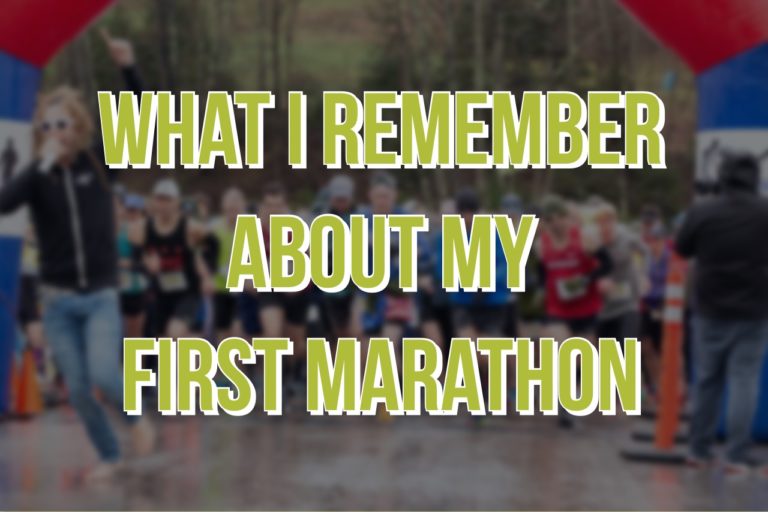
What I Remember About My First Marathon
There are things in life you sometimes hate to admit. For me, waiting so long to run my first marathon is one of them. I had been a dedicated runner for about 10 years before I finally registered for my first 26.2-miler, and it ended up being one of the most memorable experiences of my life.
“I’m not a race person.”
My problem with races for so many years was that I thought they would take the fun out of running. I thought they would be about competition, and I hate competition. I absolutely hate it. Competitiveness ruins everything. I love running so much because it’s an opportunity for me to be by myself, to focus on accomplishing my own goal, to celebrate my body’s physical abilities, and not have to worry about meeting anyone’s expectations except my own. (Obviously, this is what marathons are about too. I realized this in the process.)
When I told people that I was a dedicated runner who did long distances every day, people would ask me what I was training for. “Nothing,” I would say. “I’m just not a race person.”
That’s what I told people over and over again. But why was I telling people I didn’t like races when I had never tried one?
Eventually, my cousins persuaded me to do the 10K Across the Bay over the Chesapeake Bay Bridge, and I figured I would do it just for fun. After that first race, I was hooked. Sure, I still value my morning training sessions for the chance to be alone, but race day was a new kind of experience. It was cool to meet a few other runners, to run a course with a breathtaking view, to celebrate afterward with a big party, and to go home with a feeling of satisfaction (not to mention a few souvenirs like a T-shirt and a medal).
So I figured, what the heck? Maybe I am a race person after all. And maybe I should try a marathon. Just once, to say I tried it…
The mental challenge of a marathon
I registered for a marathon right here in my own town. In fact, the marathon course was the same bike trail that I run every single day. Sure, the scenery wouldn’t be that novel, but it was familiar and mostly flat, so that made it a little less daunting. Plus, I wouldn’t have to travel.
This was only my second race, and it was my first that I wasn’t doing with a group of people I knew. It was just me and hundreds of strangers. That turned out to be part of the excitement. When I showed up at the expo to pick up by bib and premium, I instantly felt at ease. Everyone just radiated support. A sense of fellowship hung in the air. Everyone there possessed an enthusiasm for running that was almost contagious, and being in that environment made me love running even more than I did before (if that were possible).
I went home and went through the routine I had planned for myself, having plenty of carby snacks throughout the afternoon and putting together a playlist of songs I knew always made me feel my best when I was running. “This is going to be great,” I told myself.
But it was not going to be great, the narrator of my life says at this point.
Let me emphasize this first — marathons are rewarding as hell and totally worth it. But if anyone is as foolish as I was and just shows up on race day thinking it’s not going to grueling and a little bit miserable in the moment is totally fooling themselves. Don’t let anybody try to soften that reality for you. I don’t know how something can be so awesome and so terrible all at the same time, but that’s what a marathon is.
More than anything, I realized a marathon is a mental challenge. If you’re training properly, you have the physical strength to undertake a marathon. If you can run 10 or 12 miles, your body is in the condition it needs to be in to run the full 26.2 miles. What you need is to overcome the mental challenge.
Keep pushing forward
There came for me a point where I just thought, “Ugh, this sucks! When is this going to be over?!”
I’m sure most first-time marathoners feel that way. Miles 1 through 10 felt just great, and miles 11 through 20 were tough but bearable.
By mile 20, with 6 miles left to go, I was ready to be done. But then I realized that it was all mental. Sure, I was fatigued and sweaty. My feet were a little sore. However, it wasn’t anything I couldn’t push through. I had a comfortable rhythm with putting one foot in front of the other, and I wasn’t having trouble breathing. It was just the mental block.
So I pushed on. And I finished.
Afterward, I couldn’t have been happier. Sure, my body ached and I was ready to go home and rest, but my spirits were soaring. It was great to make my way around the afterparty and see so many other runners who were clearly feeling the same way. And I had a medal to show for my efforts that I was immensely proud of.
What I learned for future races
I’ve done four marathons since my first, and I’ll say they keep getting easier and better. The first one was tough. The most recent one wasn’t—it was just fun. And I’ve managed to trim about 40 minutes off my time since my first marathon.
As with most things in life, there are lessons you take away from each experience that help you the next time. Recognizing the mental block is the first—when I did my second marathon, I went into it saying, “Look, it’s going to be hard, but that’s all right! It wouldn’t be rewarding if it weren’t a challenge.”
Don’t be afraid to accept a cup of water at every aid station along the course—you need the fluids!
If you can, arrange to have some friends or family stand along the route to cheer for you—that motivation will mean a lot, especially in the later miles of the race.
Go grocery shopping the day before—you have no idea how hungry you are going to be after the race, and you’re going to want to spend the rest of the day eating.
If possible, plan to take the next day off work—sure, you’ll have recovered enough that you will be able to go into the office if you need to, but sleeping in the day after a marathon and taking things easy feels really good. Besides, you earned it.
You never forget your first time
No matter how many races I do, I never get tired of telling people about the story of my first marathon. It’s a lifechanging experience, and there’s no way of fully appreciating how intense it is until you do it.
I’m sure other runners out there will disagree with some of what I said or will have other advice to offer up, but I think we’ll all agree you really learn a lot about yourself and your own capabilities.
You come out stronger, both physically and mentally.
And even though you hated it the whole time you were doing it, you can’t wait to sign up for the next one.

Dylan Roche
is an Annapolis-based writer and marathon runner. As a journalist focused on everything from fitness to arts and culture, he has written for a variety of publications, including Livestrong, What’s Up Annapolis, OurHealth Virginia, UpstART and Chesapeake Family Life. His first novel, “The Purple Bird,” came out in 2019. Follow him on Twitter and Instagram at @DylanIsWriting
Recent Posts
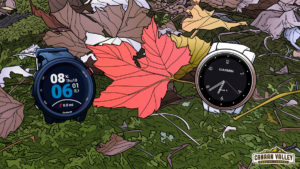
Garmin Vivioactive 4 vs Forerunner 245
Garmin Forerunner 245 vs. Vivoactive 4 About 21% of Americans use a smartwatch or fitness tracker, but not all models stack up to one another.
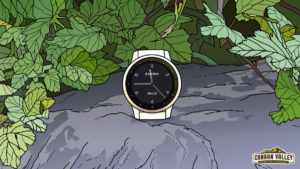
Garmin Vivioactive 4 Review
Garmin Vivioactive 4 Garmin Overview Before we dive into the Vivioactive 4 Review, what do you need to know about Garmin as a company?
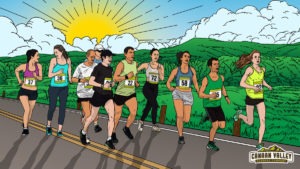
13.1 Reasons to Run a Half Marathon
13.1 Reasons to Run a Half Marathon Running a half marathon is both a physical and mental challenge. Physically, there are hours of training that
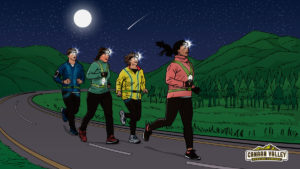
Running At Night is Awesome: 10 Tricks and Tips
10 Tricks and Tips for Running at Night With the days getting shorter and darker, you might wonder how to squeeze your run in during
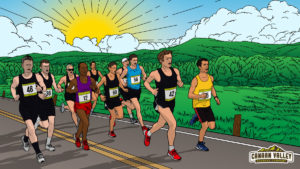
Why Is A Marathon 26.2 Miles?
Why Is a Marathon 26.2 Miles? For many long-distance runners, the marathon is the ultimate goal. Whether you simply want to complete a marathon or
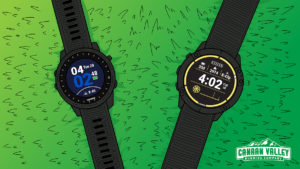
Garmin Enduro vs Forerunner 945
Garmin Enduro vs Forerunner 945 Are you an athlete or outdoor enthusiast looking for a smartwatch to track your progress? You can count on Garmin
